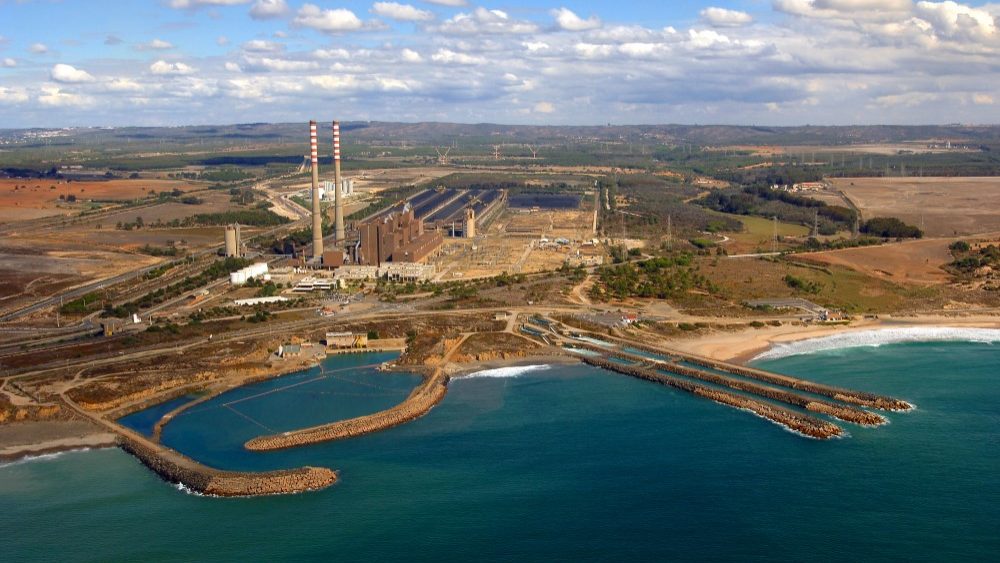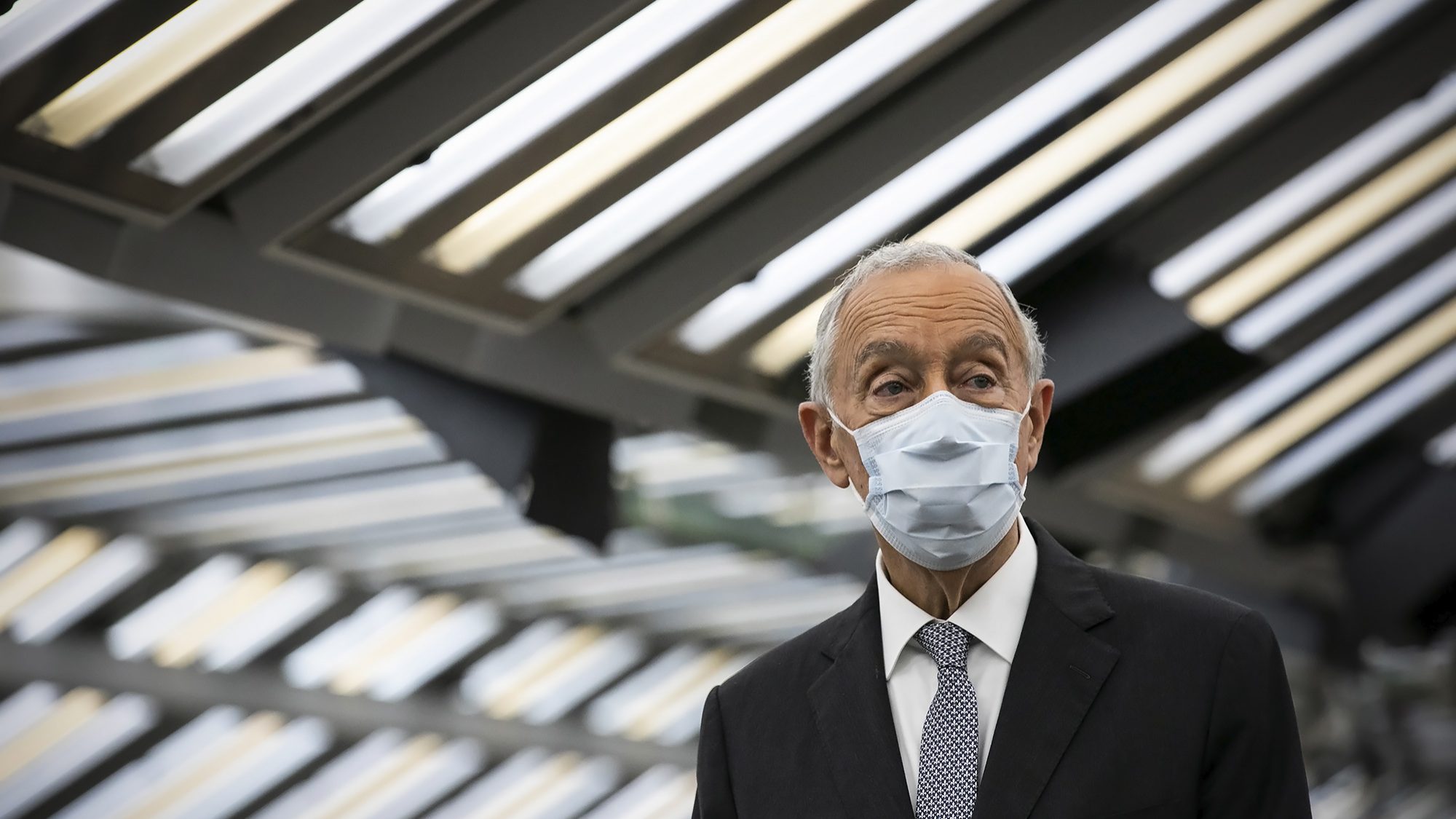War in Ukraine will affect Portugal’s State Budget
Energy prices should be the main factor to change the new State Budget, but a reinforcement of defence spending is not excluded.
The prime minister said it was “too early to assess” the potential impact on the State Budget for 2022 (OE 2022) of Russia’s attack on Ukraine, but economists questioned by ECO admit that there will be several direct and indirect budgetary impacts. What is certain is that the biggest armed conflict in Europe since the Second World War is already taking its toll on the economy, especially energy prices.
Questioned by journalists, António Costa said that “first of all we need to know the extent and duration of this conflict” and then we need to know what “counter-measures will or will not be applied by Russia” in retaliation to the “massive” package of sanctions promised by the European Union to punish the Kremlin. The West is blocking access to financial markets, freezing assets of oligarchs, military and politicians and cutting ties with Russian banks.
“Depending on this, we will make a full assessment of the situation,” explained the prime minister, without giving further details on what might change from the original proposal. And the truth is that he still has some time to make this assessment since the State Budget proposal for 2022 will only be delivered at the beginning of April, after the government takes office at the end of March.
The first issue on the table is energy prices, in particular oil and natural gas, in which Russia is one of the main suppliers of European countries. Both energy goods have seen their price skyrocket in recent months because of higher post-pandemic demand and the mismatch between supply and demand. The attack on Ukraine has reinforced that trend, with a barrel of oil topping $100 this Thursday.
This is the most obvious change that will have to appear in the new State Budget proposal. The government had already admitted that the barrel price would have to be updated, but now that update is likely to be even higher. “According to expectations implicit in futures markets, the price of oil is expected to be around USD 68/bbl (EUR 57/bbl) in 2022,” said the original proposal that was rejected by Parliament.
In the State Budget report 2022, in the sensitivity analysis, the government predicted that even if “the price of oil is 20% higher than assumed in the baseline scenario”, there would be a “negligible” impact on GDP growth in 2022 and a “residual” impact on the unemployment rate. Why? “Due to the reduction in import growth to offset lower consumption growth,” it justified. However, it admitted a “significant impact” on the economy’s financing capacity vis-à-vis abroad, deteriorating external accounts. The variation could be greater than 20%.
Conflict will affect the Portuguese economy
“The effects could be terrible. Not in direct terms as we don’t have very strong relations with Ukraine or Russia, apart from Ukrainian immigration in Portugal”, says António Mendonça, chairman of the Order of Economists, in an interview to ECO, specifying that “the indirect effects that may occur could be extremely pernicious”, namely with the consequences on energy prices, raw materials and the instability of financial markets.
Specifically on energy, there will be a “brutal impact”, he acknowledges, pointing out that this could have a “crisis-triggering effect”. Given this scenario, the economist hopes that there will be no interest rate hike by the European Central Bank (ECB) for the time being, arguing that this would be “catastrophic” as it would “pour petrol on the fire”, even if the inflation rate continues to accelerate because of the rise in energy prices.
Nuno Valério, a professor at ISEG and specialist in economic history, reminds the ECO that, besides the short-term effects already being felt in the financial markets, the sanctions “will significantly affect the Russian economy, but will also have some less positive consequences for the economies that will apply them”, which could become “a problem” if “opinion reacts negatively”. On the evolution of GDP, he admits “pressure to slow economic growth, but recovery will naturally continue.”
On the other hand, should the government – which has some budgetary slack at the moment – increase support for citizens and businesses – such as the Autovoucher or other measures that are in place – to offset the rising cost of energy, as already requested by Apetro? António Mendonça admits that more support is needed, but this depends on the possibilities of the State. “Support is limited to our financial capacity”, he says, recalling that the pandemic crisis has already left its mark on Portugal’s public debt – the third highest in the European Union. Should the conflict worsen, it is likely that interest rates on sovereign bonds, seen as safe-haven assets, will fall, which implies lower financing costs.
Nuno Valério argues that “reducing prices does not solve” the problem as there will be a “shortage of fuel and energy sources”. The “efficient measures are to contain consumption” or increase production, he believes. It may be “important” to offset the rising cost for citizens and businesses, but this “does not totally eliminate the consequences”, he points out.
Pointing out that the uncertainty is still great and that we must wait for developments in the coming days, António Mendonça admits the possibility that we are “on the eve of an economic crisis of incalculable proportions when the effects of previous crises have not yet fully dissipated. Everything will depend on how the conflict develops, but António Mendonça believes that “taking into account the reactions of both sides”, there is a “strong probability that the conflict will increase” rather than diminish.
If the conflict continues, GDP is likely to “grow less or even decrease”, he says, speaking of the possibility of there being “another recession”, not least because the trend for 2023 was already one of the economic deceleration, which will have consequences for the taxes collected by the State and other sources of revenue. Exports could be particularly affected, even if there is no major trade between Portugal and Russia and Ukraine, “if there is instability at the international level,” he warns.
Oxford Economics currently calculates a cut in the forecasts for world GDP growth of 0.2 percentage points in 2022 and 0.1 percentage points in 2023, due to higher gas prices in Europe, the medium-term rise in oil and food prices – Ukraine and Russia supply various cereals – the disruption in the financial markets and the effect of European Union and United States sanctions on Russia. In the case of the Euro Zone, the cut is greater, as shown in the graph, which will have repercussions in Portugal.
Already taking into account the tension between Russia and Ukraine, the US bank JPMorgan Chase has revised Euro Zone growth downwards from 1.5% to 1%. A recent analysis by Rabobank mentioned how the automobile sector (also present in Portugal) could be affected by the disruption of Russian exports of palladium, aluminium or iron.
For Joaquim Miranda Sarmento, a public finance specialist and future member of parliament, there are “major risks” for the Portuguese economy in this conflict, starting with the worsening of inflation with the increase in raw material prices, as well as the impact via exports. However, he stressed that it is necessary to see the effect of sanctions, whether there will be retaliation by Russia and the duration and intensity of the conflict.
“It is difficult to make predictions,” he said, admitting, however, that “this has everything to be an event with a very significant impact” on the economy. In relation to the Budget and support to offset the rise in energy prices, Miranda Sarmento admitted that the government “will have to consider whether or not to maintain these measures”.
Will the Defence budget grow?
The forecast for consolidated public expenditure for the Defence programme in 2021 was €2,422.8 billion. Of this, almost half (46.5%) is spent on personnel expenditure, according to Defence Minister João Gomes Cravinho. For 2022, the rejected budget provided for a slight increase to €2,451.5 million.
The question now is what will happen to the defence budget as a result of this conflict, not least because Portugal is part of NATO’s rapid response team, which has been authorised by the National Defence Council to take part in “deterrence” missions in Atlantic Alliance countries bordering Ukraine or Russia. Around 1,500 soldiers could be deployed, which could mean more costs for the Portuguese State.
For António Mendonça there is no doubt that the budget in this area will have to be increased. “It is natural and likely that it will tend to increase,” he says, admitting a greater expenditure on human and material resources since “Portugal as a member of NATO has to fulfil its responsibilities. It is a “complementary effort” that has to be made.
An opinion corroborated by Joaquim Miranda Sarmento: “If in fact, Portugal has to participate in a NATO effort, it will have budgetary impacts because the military personnel who are deployed have a higher remuneration”, in addition to the expenses with the activation and maintenance of military equipment for days or weeks.
Nuno Valério also admits that in a scenario where there is a return to a “cold war” scenario, should Ukraine become within Russia’s sphere of influence, this would involve “more resources for defence in order to act as a deterrent”. “He added: “Traditionally this effort has fallen to the US, but it is difficult for European countries to avoid being able to contribute significantly more, even for their own security.
There are also other expenses that may have to be included in the new budget, such as the withdrawal of citizens in Ukraine and the reception of fleeing citizens. “All Ukrainians are welcome in Portugal,” announced the prime minister.


